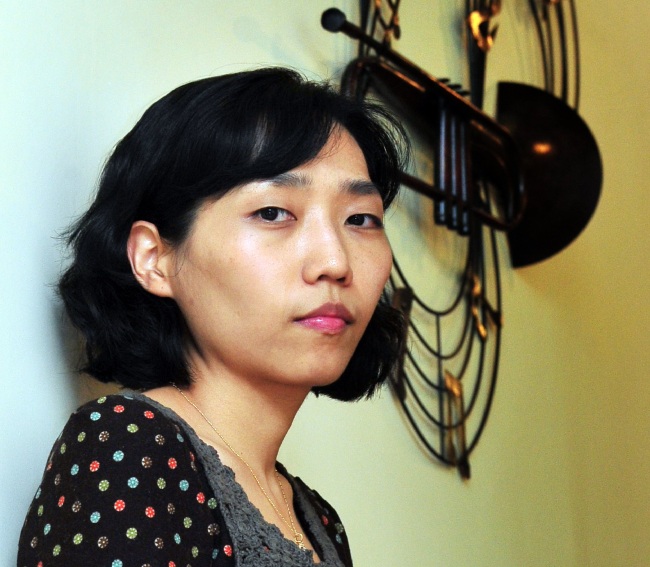It’s been almost three years since Dr. Song Yoon-hee released her first documentary, “White Jungle.”
Dubbed the Korean version of “Sicko,” the low-budget film was an expos on Korea’s health care system, including privatized hospitals that solely focus on profit-making.
Since her film debut, Song has done a lot as a filmmaker as well as a physician. She wrote a screenplay for veteran auteur Im Kwon-taek’s latest project, “Hwajang,” while working as an industrial medicine specialist. When “White Jungle” came out, Song was working as a researcher at an NGO for health care.
Her job as a physician now is to visit factories nationwide, about two times a week, and talk to laborers about their health conditions and perform check-ups. She also gives advice to the owners of the factories, in regards to the working conditions and how they affect workers and their health.
 |
| Medical doctor and filmmaker Song Yoon-hee (Park Hyun-koo/The Korea Herald) |
“The worst is to see a worn-out worker who has all kinds of health problems, both physical and mental, and learning that she or he just can’t quit the job,” Song said in an interview with The Korea Herald.
“They can’t pay their bills without the job. But many physicians like me don’t belong to the government, so the business owners are not obligated to follow my advice. I guess that’s one of the challenges that industrial medicine faces.”
Song chose to major in industrial medicine while attending medical school, after being inspired by the senior students. One of the people Song met in her 20s was physician Gongyoo Jeong-ock, who is well-known for her activism against Samsung Electronics. Gongyoo supported workers who became ill after spending many years at a Samsung memory chip plant.
“I was going to choose between psychiatry and industrial medicine,” Song said.
“And there was something special about those who major in industrial medicine, and they opened my eyes in many ways. And my experience interning at the psychiatry department also affected my decision. As a psychiatrist, your job is to take care of your patients most of the time, rather than curing them. One of the psychiatrists once told me, ‘I feel like the best I can do for my patients with schizophrenia is to grow old with them.’”
Aside from her main job, she spent 2012 writing a movie script. Song’s project is a film adaptation of an award-winning short story that famed author Kim Hoon wrote in 2004. Titled “Hwajang” ― which can mean “cremation” or “makeup” ― the upcoming film deals with a middle-aged man who spends most of his life working for a cosmetics company, and his cancer-stricken wife.
“I was very busy (while writing it),” she said. “I was also pregnant when I was writing the script. It took me almost a year to finish it. And I spent most of my time editing the initial draft and taking care of a new-born baby.”
Song was pleasantly surprised when Shim Jae-myung, the CEO of leading film house Myung Films, contacted her about writing the script for the film. While the original novel is told entirely from the perspective of the male protagonist, Song tried to add the voices of his ill wife, as well as a young woman he falls for at work, to the script.
“It was Shim Jae-myung, so I really didn’t have the choice but to say yes,” Song said. “And because I know how hospitals work, it was relatively easy for me to write the scenes that take place in the patient’s room.”
While continuing to work as a physician, Song, who has always loved films, said she wants to continue partaking in the world of cinema ― whether it be writing or directing. “I am up for anything, and it doesn’t have to be documentaries,” she said. “I think you are motivated to make documentaries when you really want to speak about something. I made ‘White Jungle’ for that reason.”
By Claire Lee (dyc@heraldcorp.com)

